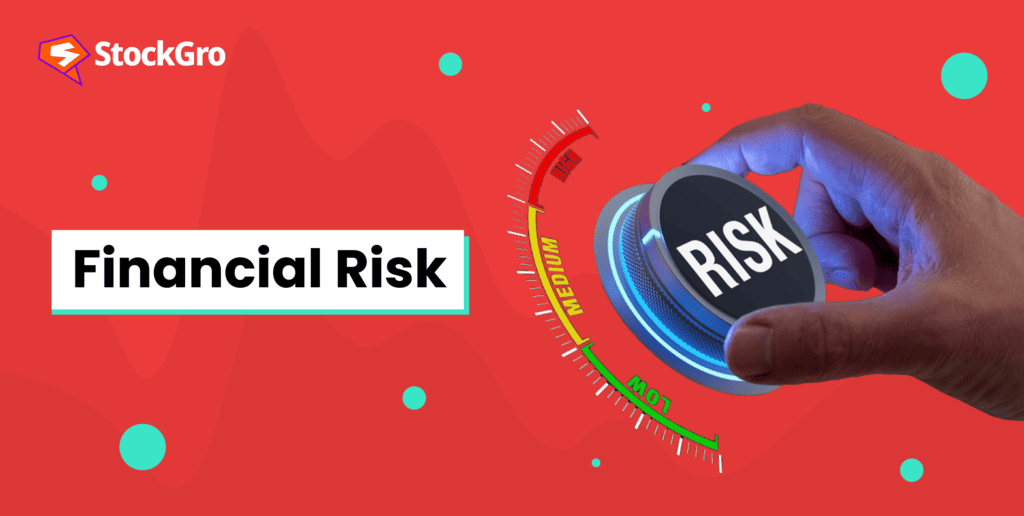
Managing one’s finances is crucial for a peaceful and worry-free life. Whether we agree or not, money is essential for all our lives. Hence, planning how to earn, spend, save and invest our finances is necessary.
Personal finance is a concept that deals with the financial management strategies of individuals and their families. It discusses the various investment and saving opportunities, wealth-generating assets, personal financial risks, and more.
Today’s article specifically deals with personal financial risks. Understanding these risks is of paramount significance as they help in planning finances better and being prepared for unforeseen situations.
Also read: Understanding risk parity in portfolio management
Types of personal financial risks and management strategies
Personal financial risks cover all those situations where individuals do not have enough financial resources to meet their requirements. The requirements could vary from one person to another. Some of the common financial risks that individuals personally undergo are:
Loss of income
Income risk is the fear of losing regular income. This mainly applies to salaried class employees working in private jobs since they are highly exposed to layoffs and job insecurities. The fear of losing income, however, applies to all those individuals relying on a single source of income.
Some ways to manage income risks are:
- Create an emergency fund – Divert a portion of your salary into an emergency fund every month. Start this practice early in your career so that your emergency fund has enough money to help you in need. Industry experts suggest maintaining an emergency fund having money three to six times your monthly salary.
- Create a budget – Following a budget and cutting down on unnecessary expenses can help to a great extent during unemployment. It also helps analyse costs and find reasonable sources to reduce expenses.
- Passive income options – There are multiple ways to earn passive income by putting one’s passion and creative skill to use. Writing, painting, baking, social media jobs, etc., are some regular passive income options.
Excessive spending
Excessive spending is the act of spending more than required. It refers to spending on things that you do not need and are beyond your means.
Does that mean one should cut down on all expenses and stop having fun? Well, that is not what we essentially mean here.
Pampering yourself and your loved ones is necessary. However, one should be conscious and maintain boundaries instead of spending with a carefree mindset. Some people overspend as they view it as a way to enhance their image in society. Impulsive shopping is another classic example of overspending, where people buy products in a rush even though they may be of no use to them.
Mindless spending can push people into various financial troubles. It can create debt traps, impact one’s credit scores, cause unpreparedness for urgent requirements, affect mental health and more.
Some ways to manage the risk of excessive spending are:
- Analyse your expenses – Check your shopping history to understand what products push you towards impulsive spending. Avoid such thoughts consciously from the next time.
- Plan your shopping – Preparing a shopping list beforehand will help you restrict your shopping activities to items on the list.
- Unsubscribe from brand emails and messages – Unsubscribe your email ID from brand notifications and messages until you get control over your shopping desires.
- Try the 30-day rule – If a product or service really attracts you, control your urge for 30 days before spending money on it. If the desire to spend on it is still strong after 30 days, buy it.
Health and mortality risks
Health risks refer to expenses that pop up during sickness. Recovering from a health issue is expensive as people must spend on medicines, hospitalisation, regular check-ups and more. While minor issues like cold, cough and fever may not require planning, some major diseases can be very heavy on pockets.
Also read: All about health insurance schemes for a millennial investor
Another health-related risk is mortality risk. This is a risk that passes on to the deceased’s family. A person’s death can impact the family’s lifestyle and financial situation to a large extent. Hence, being prepared for health and mortality risks is essential.
Some ways to manage health and mortality risks are:
- Medical insurance – Whether through office or personal sources, having medical insurance is essential for an individual. It helps claim reimbursement of costs during medical treatments, subject to certain conditions.
- Life insurance – A life insurance coverage policy can come in handy for the deceased’s family. It is a policy where the insurance company provides the insured sum to the nominee, thereby helping the family meet their financial commitments after the death of a family member.
Lack of future planning
They say money saved is money earned. But allowing all your money to lie idle in your savings bank account may not be the wisest choice. Maintaining some liquid cash in your savings bank account is necessary. The rest of your funds should be diverted into avenues that offer growth.
Some ways to plan better for the future are:
- Start an early SIP – SIP stands for Systematic Investment Plan. It is a way of transferring a certain amount at regular intervals towards investment plans. SIPs allow individuals to start investments from ₹500, reducing the pressure and helping them build the habit of saving.
- Create a fixed deposit – Fixed deposits offer better interest rates than savings accounts. They are also one of the safest investment options available. Maintaining a fixed deposit can help manage huge commitments such as education, marriage, buying a property, etc.
Investment risks
This deals with the risk of losing wealth because of market conditions and wrong investment decisions. The financial market offers various opportunities for investors to grow their wealth, but it is equally risky. Profits and losses are equally probable.
Some ways to manage investment risks are:
- Holding a diverse portfolio – Diverting funds into different assets, such as stocks, bonds, money market instruments, real estate etc., helps maintain a diverse portfolio. Generally, the loss in one can be offset against the profit of another, minimising the overall loss.
- Investing in mutual funds – Investing in stocks through mutual funds rather than direct stock market investments can suit better for investors who are risk averse, as mutual funds are managed by dedicated fund managers.
- Investment analysis – Analysing your investment options thoroughly by checking financial statements and past trends using fundamental and technical tools is essential before making investment decisions.
Bottomline
While earning money is one aspect, saving and investing it in the right avenues is equally consequential. Understanding money-related risks that one may face during their journey and learning the different ways to manage personal financial risks are keys to having a healthy financial situation.
Also read: SIPs: The game changer for mutual fund investors in 2023 with a 22% spike

